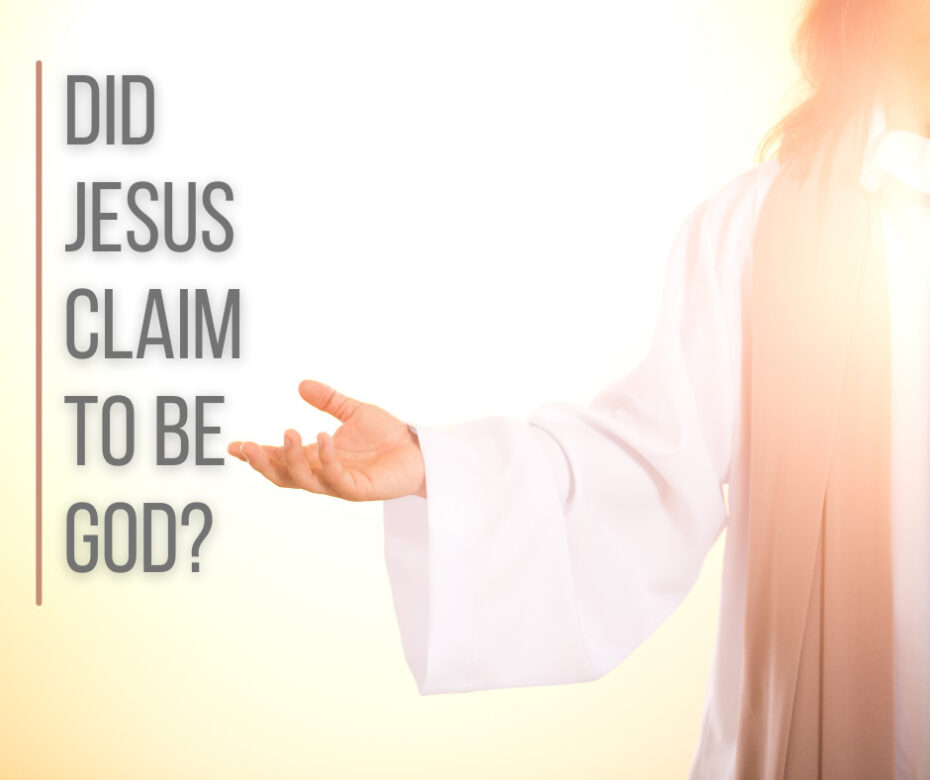Why should you believe that Jesus can give you eternal life? Who has that kind of power and authority?
In his essay, “What Are We to Make of Jesus Christ?,” C. S. Lewis noted some of the curious things Jesus said that made people wonder about His real identity. For example, Lewis paraphrases what Jesus said in Mark 14:60-63:
There is, of course, the one moment which led to His execution. The moment at which the High Priest said to Him, “Who are you?” “I am the Anointed, the Son of the uncreated God, and you shall see Me appearing at the end of all history as the judge of the universe.”
What kind of a human being can make that kind of claim? Who will judge humanity at the end? A mere man?
As Lewis points out, that was not a one-off comment:
When you look into His conversation you will find this sort of claim running throughout the whole thing. For instance, He went about saying to people, “I forgive your sins.” Now it is quite natural for a man to forgive something you do to him. Thus if somebody cheats me out of five pounds it is quite possible and reasonable for me to say, “Well, I forgive him, we will say no more about it.” What on earth would you say if somebody had done you out of five pounds and I said, “That is all right, I forgive him?”
That kind of claim led the Pharisees and scribes to ask, “Who can forgive sins but God alone?” (Luke 5:21). Jesus only ever hinted at the answer to that question.
Then there is a curious thing which seems to slip out almost by accident. On one occasion this Man is sitting looking down on Jerusalem from the hill above it and suddenly comes an extraordinary remark—“I keep on sending you prophets and wise men.” Nobody comments on it. And yet, quite suddenly, almost incidentally, He is claiming to be the power that all through the centuries is sending wise men and leaders into the world.
Who sent the prophets on their missions? Whose word did they deliver? God’s. But if Jesus implied that He sent them (cf. Luke 13:34)…Hmm.
Here is another curious remark: in almost every religion there are unpleasant observances like fasting. This Man suddenly remarks one day, “No one need fast while I am here.” Who is this Man who remarks that His mere presence suspends all normal rules? Who is the person who can suddenly tell the School they can have a half-holiday?
Since God Himself gave the commands to fast, how can Jesus have the authority to suspend them? Who is He?
Sometimes the statements put forward the assumption that He, the Speaker, is completely without sin or fault. This is always the attitude. “You, to whom I am talking, are all sinners,” and He never remotely suggests that this same reproach can be brought against Him.
Jesus was without sin. A young ruler once called Jesus “good,” to which Jesus responded, “Why do you call Me good? No one is good but One, that is, God” (Mark 10:18). The young ruler could complete the syllogism: If no one but God is good, and Jesus is good, then that would mean Jesus is…
He says again, “I am the begotten of the One God; before Abraham was, I am,” and remember what the words “I am” were in Hebrew. They were the name of God, which must not be spoken by any human being, the name which it was death to utter.
When you put those comments together and think about what they imply, you’ll probably come to a shocking conclusion. Who can rightfully say the kind of things that Jesus said?
In my opinion, the only person who can say that sort of thing is either God or a complete lunatic suffering from that form of delusion which undermines the whole mind of man.
Since nothing in Jesus’ life suggested lunacy, and everything in His moral teaching suggested wholesome sanity, Lewis came to the surprising conclusion: Jesus is God!
And since Jesus is God, that is a very good reason why He can promise everlasting life to believers and make good on that promise.
Have you believed in Jesus for that free gift? It would be crazy not to!


